I became a Quaker when I was 14, which means that this year I celebrate having spent half of my life among Friends. Over the past 14 years, I have seen my faith shift and transform many times over within the Religious Society of Friends. These days, I’m not so sure where I fit in as a young adult and Christ-centered Friend who finds herself in Quaker spaces that often feel more like liberal discussion groups than church. I fluctuate between leadings to seek the spiritual enrichment I need elsewhere and leadings to stick around and invest in the community that raised me. I’m hoping my experience might shed some light on our condition as a community (and the spiritual conditions of my generation more broadly) and inform our revitalization endeavors.
I started attending Baltimore Yearly Meeting Young Friends gatherings as a freshman in high school, finding community there among like-minded peers that was severely lacking at my school. Quakerism became the most important thing in my life, but my understanding of it was shallow. It was, for me and most of my peers, about community and about holding vaguely progressive political views, and also about being “not Christian like that.” We didn’t come to this mindset on our own; like most kids in youth groups, we were mirroring the adults in our lives and meetings. The dominant culture was spiritual but not religious, community-focused but often cliquish, and positioned squarely against the rest of organized Christianity.
I went off to Guilford College in Greensboro, North Carolina, smugly assured of my secular faith. My worldview was promptly blown up when I took my first class with professor Max Carter. Max introduced me, and many of the young adults in my Quaker Leadership Scholars Program cohort, to a Quakerism that did not shy away from Christian spirituality but rather used it to strengthen our faith and practice. He helped us connect with early Friends and mystics, to make sense of our schisms and why contemporary Quakerism looks the way it does. He helped us claim ownership over it, and imbued us with a sense that we might have the power to reimagine it. I came to understand that to call myself a Quaker and not a Christian was no longer possible: living with integrity meant I had to choose to go deeper or go elsewhere.
I came to understand that to call myself a Quaker and not a Christian was no longer possible:living with integrity meant I had to choose to go deeper or go elsewhere.
As I began to identify more with what William Penn called the “primitive Christianity” of early Friends, and less with what Max Carter referred to as the “potluck Quakerism” of Northeastern Liberals, it became more difficult for me to understand where I fit into the nominally Quaker, but secular-feeling, spaces I found myself inhabiting through school and work. The older Quakers that dominated these communities, like many of those I grew up around, often had one thing in common: As young adults, they had become Quakers because they were fleeing another, more strict or doctrinal form of Christianity. This experience is becoming increasingly unfamiliar to today’s young people.
According to a 2022 report on the future of religion in America by Pew Research Center, the number of parents that decide to raise their children without religion is steadily increasing. This trend is reflected in my anecdotal experience as a young adult: Aside from holidays and family events, my upbringing was mostly irreligious, and the same was true for most of my friends growing up, especially those whose parents had been raised Christian. As each generation rebels against the one before it, many of my peers are now hungry for not just spirituality but also often religion. As a Twitter user, I have a front row seat to the bizarre wave of traditionalist Catholicism that’s sweeping New York’s Dimes Square arts scene and garnering media attention. In my own life, I have numerous friends and acquaintances who were raised with little to no religion and are now starting Bible study groups, attending church regularly, and even taking catechism classes.
Maybe it’s youthful rebellion; maybe it’s curiosity combined with a feeling that we missed out on something that has been essential to the human experience for millennia. Whatever it is, Friends can’t afford to ignore it. A generation raised without religion has little context and structure for their newfound faith, and many are turning toward the religious spaces that provide the most accessible structure, whatever that might mean ideologically. Many of them are swept up in the first churches that claim to offer a clear path to connection with Spirit, even if these communities reject the most fundamental teachings of the Gospels: that God is with the poor, the oppressed, and the peacemakers (Mt. 5:1–11).
Of Evangelicalism and Pentecostalism, Christian denominations known for their moral litmus tests precluding membership, Luke Timothy Johnson writes in his 2003 book The Creed: “Such forms of Christianity flourish because they actually demand something of their members and they satisfy the human hunger for clarity and certainty.” Today, these two religious groups are among the fastest growing in the United States. Even so, I certainly don’t want to be asked to pass the litmus tests required of many Evangelical communities. I find most of them—hatred of the LGBTQ community, or rejection of women’s bodily autonomy, for example—abhorrent and even heretical. But I do think it may be time for Quakers to take a harder look at what we require of ourselves and each other. What work does God have for us and how can we hold each other accountable in carrying it out? What common ground unites us, and if it’s not God, then what makes the Religious Society of Friends a religious society?
In recent years, Friends’ lack of strict regulations has been seen as a singular strength when it comes to recruitment. I think that’s mostly true, in that it removes barriers to entry. But it’s misleading to act as though we don’t have any rules. As a convinced Quaker, it took me quite a while to understand the ins and outs, what was expected of me, and what I was signing up for. It sometimes felt like the only way to learn a “rule” was to break it. Rather than being attached to any strongly held shared belief or doctrine, these rules often assume someone has a solid understanding of our many acronyms and buzzwords. This kind of gatekeeping lacks substance.
We often don’t think about the potential Friends who slip through the cracks because there’s not much to grab hold of: those who don’t know where to turn in the silence, not having a solid foundation in Scripture, Christian ethics and social teachings, or even Quaker history; those who feel alienated by the meetings in which Friends cringe if you talk about Jesus Christ, or even about God; and those who simply can’t figure out if we are Christian or not, due to mixed messaging and lack of conviction among members of their meetings. These obstacles must be recognized and addressed as part of our efforts to present accessible pathways to entry, not only for the young adults hungry for religious community but also for the poor and working classes among which religious belief tends to be high, according to recent Pew studies.
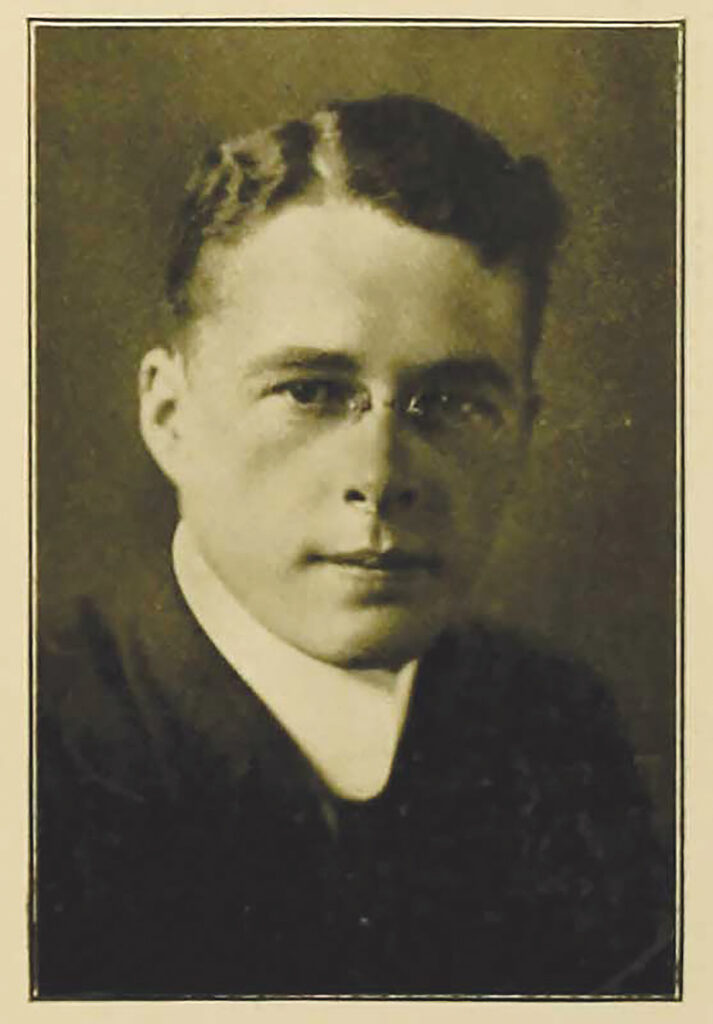
Courtesy of Quaker and Special Collections, Haverford College, Haverford, Pa.
One thing that unites Friends across generations is a deep investment in economic and social justice. It often seems that self-consciousness about some of the negative reputations of contemporary Christianity holds us back from embracing a more symbiotic relationship between faith and activism—the kind that informed influential figures like Martin Luther King Jr. and Dorothy Day. Today, meetings are struggling to interpret the peace testimony and discern about topics like abortion and reparations, but these conversations are too often grounded more in a sense of urgency and contemporary political discourse than in Spirit. At the beginning of World War II, Thomas Kelly wrote in his essay “Hasten unto God” of the need for Friends to be firm in their spiritual foundation:
The times are severe, the need is great. And we must hasten: we all agree. But whither shall we hasten? Two directions we must hasten in order to plumb the depths and scale the heights of life. We must hasten unto God; and we must hasten into the world. But the first is the prime need; though the world be aflame by its own blindness and hate, and narrow ideals. We must first hasten unto God. [Those] whose heads have not rested in the bosom of God are not yet ready to be saviors of the world.
This Friend speaks my mind. Studying the radical social movement of the early church in Scripture gives us a road map for Spirit-led social change: for answering that of God in all people. Personal spiritual deepening work helps us understand each of our places in the movement, and gives us strength and energy for the work ahead.
If we can embrace God with a renewed dedication, we will strengthen our witness in the world. We also might convince some Christ-curious 20-somethings that being Christian doesn’t have to involve embracing reactionary politics. We know that Christianity has been co-opted by some of the most violent forces in this country, and has been used to justify acts of evil for centuries. So has almost every other organized religion. That doesn’t mean we need to get rid of it altogether. In fact, we could come to understand that our duty as progressive Christians is to reclaim our faith, just like early Friends did: When Christianity was corrupted by a government that violated many of Jesus’s teachings, Quakerism emerged in England as a response. They, in turn, were mirroring the early church and its rebellion against a corrupt empire. If we’re seeking to turn away from empire and instead establish the kingdom of God on earth (Rev. 11:15–18), or become what Adria Gulizia calls “people of the promise,” both Scripture and early Friends show us a path forward.
As we seek a renewal of Quaker vitality, let’s look to our roots that are as Christ-centered as they are revolutionary. Let’s ground our worldly witness in Scripture and prayer, as well as deepen our individual connections to Spirit. Let’s clarify our commitments, and let’s not forget where we came from.


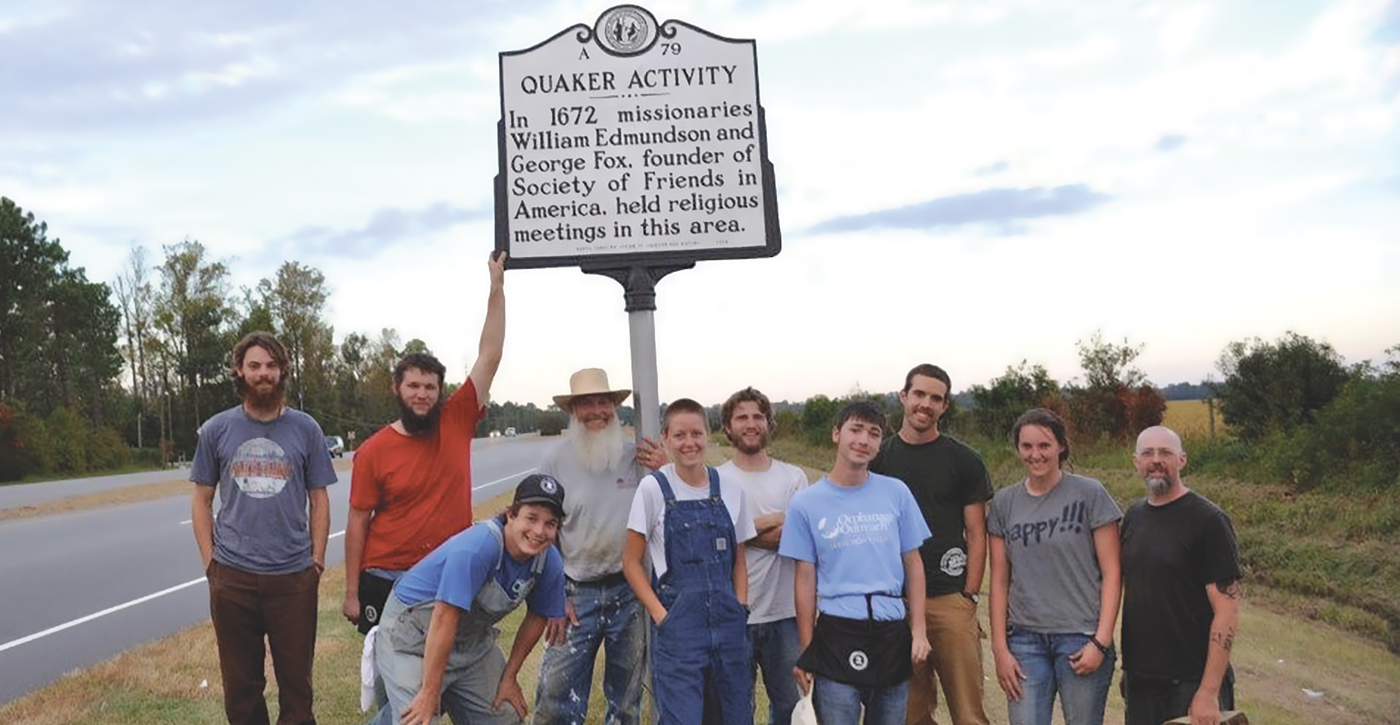
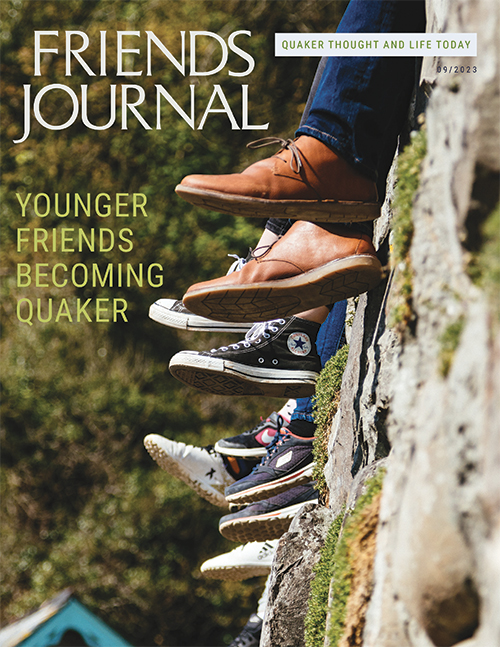
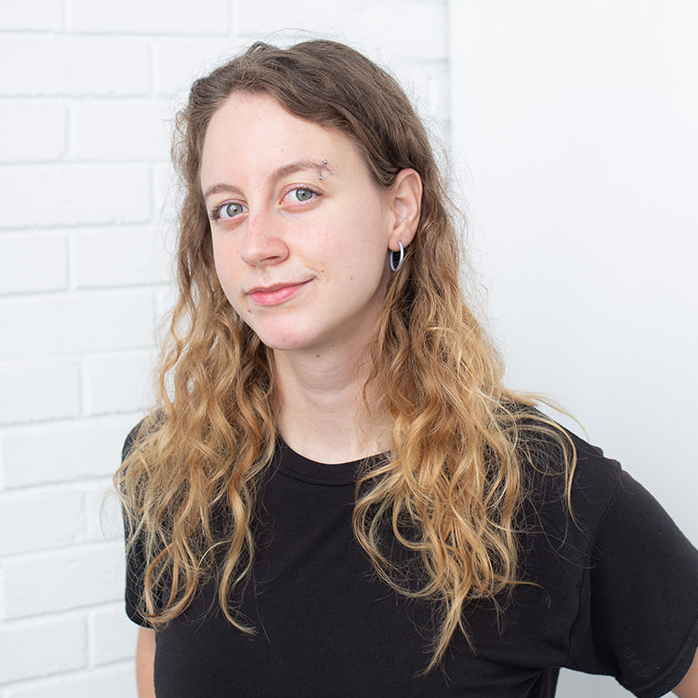
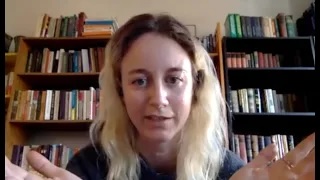
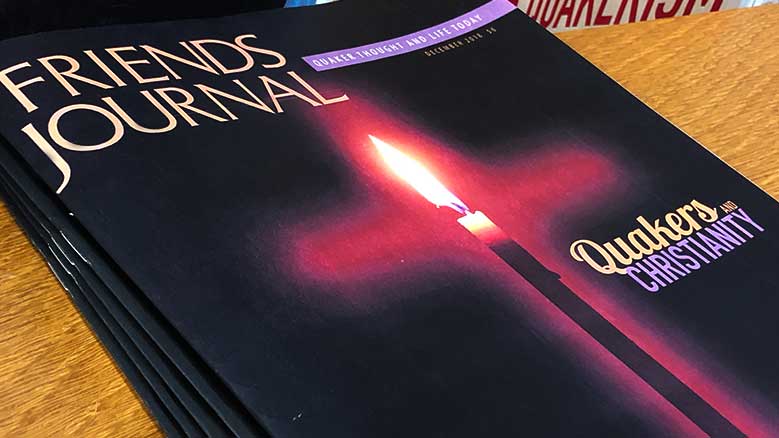
Yes! Some of us older, “experienced” Quakers in the liberal tradition also want this deep and personal knowledge and RELATIONSHIP with Jesus, the Christ Spirit and where that leads us in our faith and practice. We want to be able to study and talk about it and our experience freely. We may be “Convergent” Friends embedded in liberal Meetings and hesitate to be upfront about where we are in our faith journey for fear of “stepping on the toes” of those Friends who are refugees from other traditions (that frequently frightened and scarred them very badly – I feel tender about these Friends). So how to shape our liberal Meetings to serve and support the refugees while also nurturing the journeys of those of us who need the deep grounded-ness of spiritual forbears in Q uakerism? For I truly want to nurture and serve all within one fellowship and one message to the wider communities in which our Meetings are situated: come seek with us and you will find. We will be led to serve the poor, the poor in spirit, the minorities marginalized in the societies around us, the prisoners and the families of the imprisoned, the orphans and the migrants from climate change and those seeking asylum. WE WILL BE LED. I hope your generation explores and develops some answers for yourselves and your search inspires others of us to search with you.
Thank you Olivia. Wise words for aging Quaker Meetings to be aware of as we struggle to attract and welcome enough younger seekers into the Society of Friends.
Although I sympathize with people’s desire for what Luke Timothy Johnson calls “clarity and certainty”, there is very little in life that is clear and certain. Check out https://www.thegreatcourses.com/professors/luke-timothy-johnson for Johnson’s courses on unclear and uncertain topics such as Jesus and the Bible. One book that helped me sort through things (and what could help young people sort through them) is “Quakerism — A Theology for Our Time” by Patricia A. Williams. Williams treats Fox, Barclay, and the early Quakers with the respect they deserve, but she pulls them into the 21st century, where we need them to be. Part 1 of the book consists of chapters on “The Stable Core: The Light Within”. Part 2 is on “Scripture: The Challenge of Rational Criticism”. Part 3 is on “Science: The Encounter with Empirical Knowledge”. I’ve always wanted to ground myself in Barclay, but have been put off by the old style of English, and even the translation of Barclay into modern English was off-putting because of Barclay’s clear and certain beliefs in things that aren’t clear and certain. Williams’ book was a godsend.
Olivia, many thanks for your thoughtful and insightful article. Although I have been interested in Quakerism all my life, I have never formally joined, even though there is a large part of me that would like to. The reason for that is the fact that liberal politics seem to dominate the discussions both online and in person. Specifically, the harsh criticism of Israel among certain Friends has forced me to maintain my distance. Much of my family is Jewish, and my children were raised in the faith. Their maternal grandparents both survived concentration camps. They were lucky enough to survive, but most of their family members did not. Yes, I have had strong disagreements with many segments of mainstream Jewish thinking, to the point where I yanked my kids out of a Jewish day school, but support for Israel is a non-negotiable in our family. Nor would we support an Israel that is so weakened by land concessions that the nation would be unable to defend itself against terrorist onslaughts; a quick study of the realities posed by a world map would serve to illustrate the absurdity of whittling Israel down even further. (Strange how I never hear proposals that the US or other developed nations give away vast portions of their questionably acquired territory.)
There is much common ground where liberals and conservatives could share an honest debate, particularly in the areas of abortion and restorative justice, but the current suppression of free speech in too many arenas, coupled with the lack of respect in our society and the ongoing deterioration of our education system, render that possibility more difficult.
Again, thank you for your eloquent contribution.
Olivia, Thanks you for writing this article and to know that your journey continues among Friends. At my first FGC conferences, I took a workshop, “George Fox and the Bible” where my Southern Baptist education helped me see the roots of Quakerism and feel that this was my home. We compared his words in his journal with passages in the King James Bible. I was the only one in the workshop who had read & studied the Bible. Wonderful to know you are with School of the Spirit now.
Brilliant insights. Hard to exceed the radicalism progressivism of Jesus saying everyone from leper to king to prostitute is equal at that time, which is still hard for most in our hierarchical societies to grasp. Love enemies is his and our ultimate challenge.
If God has tried to reach everyone, everywhere, at all times, wouldn’t many religions emerge around a huge world once disconnected? If so, do most religions and philosophies have insights that may help all of us if we knew and understood unique wisdoms? Is it a surprise that more pacifist religions like Buddhists, some parts of Christians, and some part of Muslims emerged in lands of plenty, rather than harsh arid overpopulated lands where life was far more tenuous and less forgiving?
Our public high schools are not banned from teaching history of world religions and philosophies, so all students better understand the complex and interconnected world we now inhabit, and explore new ways forward together.
Thank you Friend Olivia and above commenters.
I am a convinced Quaker; convinced by the experience of my first and all subsequent meetings, large and small, “where two or three are gathered in my name….” . The Armaic word translated as ‘name’ can also be translated as vibration or energy or light. Yesua was speaking Armaic when he said the above. My point being, calling ourselves ‘Christian’ is not the point. Being doers of the teachings of Christ is the point. “My mother and my brothers are these, who hear the true account and put it into practice.” (Sarah Ruden’s new translation of Luke 8:21)
It was professors of Christianity who beat George Fox, threw him down steeple house steps and over stone walls. I agree wholeheartedly that something is missing for newcomers. I am not sure insisting on ‘Christian’ language will supply the need. While George Fox did say, ‘There is one who can speak to your condition, Christ Jesus.’ ; he mostly spoke of The Truth, The Light, The Seed.
When I attended my first meeting, only about six years ago, I had been actively practicing centering. I had a practice that occupied my left hemisphere (monkey mind) allowing my deep mind (right hemisphere) to participate in the synergy that is a gathered meeting. Now, I do not use the aforementioned practice. Being in the presence of Friends centers me.
From my perspective, it seems that helping newcomers learn to center may be the greatest service we can offer. One experience of a gathered meeting changed my life forever. Continuing to experience The Light in the presence of Friends brings deeper meaning to my study of scripture, all scripture, but especially Christian scripture.
I see other commenters recommended resources. Here’s mine: Silence; A user’s Guide by Maggie Ross. Did you know that silence was one of the targets of The Inquisition?